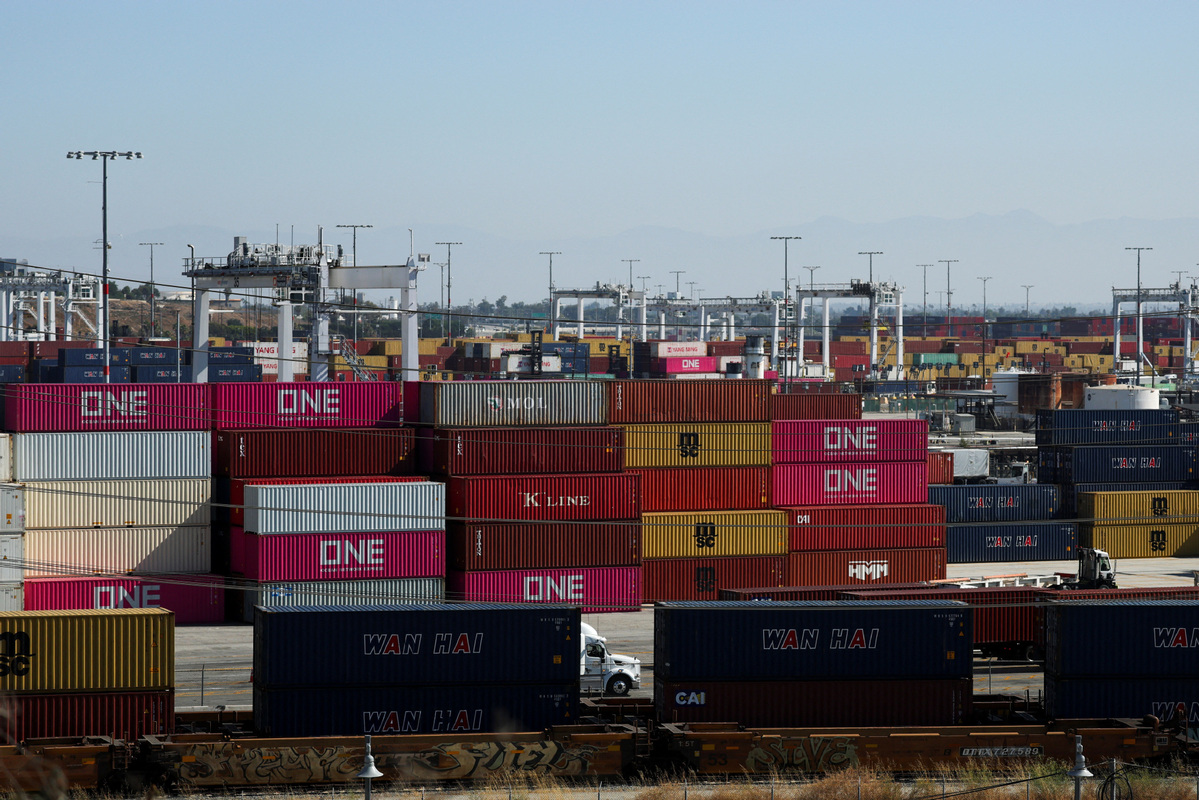US tariffs: hacking global trade with 'grievance politics'


The tariffs being imposed by US President Donald Trump are not a traditional trade policy designed to produce economic solutions, but a deliberate "hack" of the global trade system driven by a grievance-based narrative, a US business professor argues in a new book.
Richard Baldwin, a non-resident senior fellow at the Peterson Institute for International Economics think tank and a professor at IMD Business School in Lausanne, Switzerland, argued that the tariffs act as a "political placebo" for domestic audiences rather than address structural economic issues.
"If you think about it as a trade policy to fix economic problems, it's incoherent, but as a policy to address grievances, it's perfectly coherent," Baldwin said at an event last month hosted by the institute in Washington, DC.
His book, The Great Trade Hack, suggests that the world could split into competing trade blocs, such as the US, EU and China, with escalating tariffs eroding WTO rules, leading to uncontrolled trade conflicts. Another possibility is the US becoming a more closed economy while the rest of the world moves forward.
The tariffs follow escalating US-China trade tensions, particularly over China's restrictions on rare earth exports, critical for industries like electronics and defense.
On June 27, China's Commerce Ministry confirmed a trade framework with the US, agreeing to expedite rare earth export approvals while the US will lift restrictions on chip software, ethane and jet engines, formalizing talks held in May and June. However, no final US-China deal has emerged.
Baldwin said the tariffs Trump imposed in April mark a historic shift, signaling the end of the US-led trade era that began in 1947.
"I think your grandchildren will be reading about April 2 in the history books as the beginning of the post-American trade leadership era," he said.
He pointed out that, unlike previous tariffs under past administrations that targeted specific issues or partners, these tariffs broadly violate World Trade Organization commitments and free trade agreements, effectively dismantling decades of US trade promises with a single stroke. Baldwin described this as a "war on the rules-based trading system by the largest trader in the world", not a conventional trade war but a systemic disruption.
At the core of Baldwin's analysis is what he calls the "grievance doctrine", a narrative that frames US trade policy as an emotional response rather than a coherent economic objective. He said the tariffs are designed to address a perceived "middle class malaise" rooted in globalization and automation shocks, exacerbated by the 2008 financial crisis. Unlike other advanced economies with robust social safety nets, the US lacks policies like universal healthcare or active labor market programs to cushion these blows, leaving the middle class vulnerable.
The grievance doctrine, Baldwin argues, portrays America as a victim of globalist elites and foreign nations that have "looted, pillaged, raped and plundered" its economy. Quoting the 2025 US Trade Policy Agenda, he highlighted its dramatic tone: "The United States of America is the most extraordinary nation the world has ever known. In the previous century, it saved the entire world. Today, the opportunity offered by manufacturing sectors is not widely available to the working class. Much of our industrial might have moved overseas."
The report positions Trump as the hero who will "annihilate" these trade challenges. Baldwin said this narrative is not a strategy, but a mythic tale meant to resonate with domestic audiences. He said economic research shows that the tariffs cannot revive manufacturing or fix the trade deficit.
"The American middle class is doing very poorly," he said, citing issues like the obesity epidemic and deaths of despair. However, protectionism fails to address these root causes and may worsen economic conditions.
Baldwin mentioned that the ripple effects include trade deflection, where exports blocked from the US flood other markets, prompting protectionist measures like anti-dumping duties as well as liberalization through new trade agreements. He warned of cascading protection in downstream US sectors, such as the recent 50 percent tariff on home appliances, which could raise costs for American households. He remains cautiously optimistic, citing potential domestic pushback if inflation rises or a recession looms, as well as possible shifts in Congress after the 2026 midterms.
Baldwin stressed the importance of collaboration over confrontation, particularly in US-China relations. He advocated for realistic objectives, institutionalized dialogue, and acceptance of economic differences to stabilize the relationship.
yifanxu@chinadailyusa.com

































